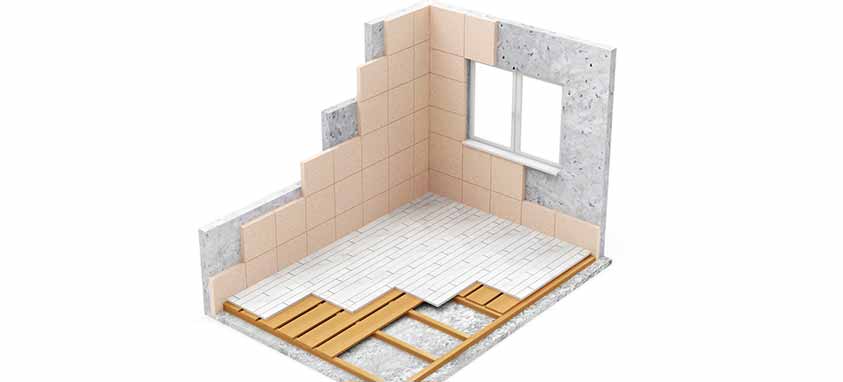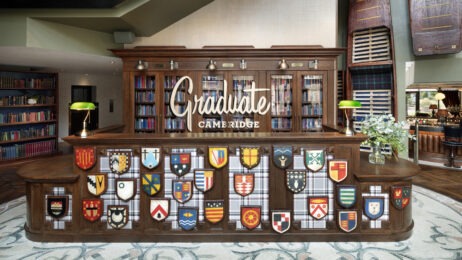Whether it’s high quality bathroom pods or entirely pre-fabricated guest rooms, hotels are incorporating more modular construction in new projects. Hotel News Now reports that modular construction could be a game-changer that redefines future hotel development.
Dave Walsh, senior director of new-build project management for Marriott International, told Hotel News Now that the technology and design of modular pieces has improved, especially for bathrooms, which can be assembled in factories as self-contained pods complete with plumbing connections and fixtures, and then shipped to hotel sites.
“The bathroom is where the majority of the trade work takes place,” Walsh says, adding that pre-assembled modular units solve many building-related problems, especially in regions with a scarcity of materials and a lack of skilled labor. He points out crafting modular units offsite positively impacts the bottom line because properties can get to market faster. “That speed to market turns into cost savings on the back end,” Walsh says.
According to Hotel News Now, Hilton Worldwide Holdings partnered with modular provider CIMC to build a Hampton by Hilton at Bristol Airport in the U.K. Hilton foresees more factory-assembled modular guestrooms shipping to new Hampton Inn and Hilton Garden Inn properties around the world, especially in emerging markets in Europe, Africa and Asia. The modular guest rooms are being manufactured to fit into standard steel shipping containers so they can easily be hoisted onto cargo vessels and transported overseas. These pieces are then connected to public spaces such as lobbies, which are built more traditionally.
Modular construction is also growing in North America, most notably when a company wants to open a property quickly, or when weather conditions impair construction efforts for long periods of time. As an example, Hotel News Now points to the new Fairfield Inn and Suites in Moncton, in New Brunswick, Canada. Developer Joey Saulnier began building in late October; the pre-assembled modules arrived in mid-December. “This avoided the problem of building in the middle of winter with the abundance of snow we get here. Each module was weather-tight at the time of installation; not having the framing exposed to the weather meant a better quality end product with less movement as the wood frame dries and less cracking of the finished product,” Saulnier says. An added benefit was that the hotel was completed several months ahead of schedule.
Walsh points out that the cost of modular construction is comparable to traditional building methods. “We believe modular should be at least cost neutral, with the savings on speed to market determined over time,” he says.
In modular construction, furniture and finishes can be installed at the factory, lending consistency to the finished product. Experts point out that even luxury rooms are going modular, especially in remote destinations. “It really comes down to the size of the box,” Walsh says. “If you’re trying to build a resort location in the middle of the ocean somewhere, that’s going to be a struggle. Modular oftentimes is a good way to get that accomplished.”




